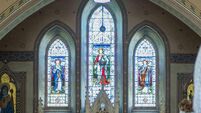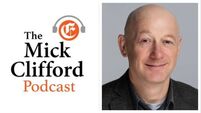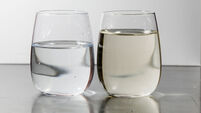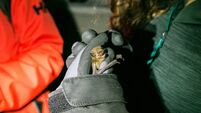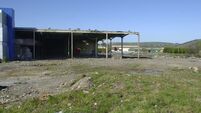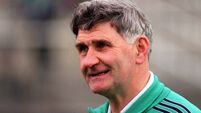Ramadan in Ireland: ‘Celebrating together makes us all feel closer to home’

Reporter Colin Sheirdan (third from left) shares food with Afghan men during Ramadan in Galway City. Picture: Ray Ryan
It’s a little after 6pm and the men have been fasting since sunrise this morning. They will break it first with prayer, then with a simple glass of water and a date, before finishing their devotion and preparing their evening meal — known as Iftar — together.
“We are so lucky to have found each other here,” says Hamza.
“Ramadan can be a lonely time for Muslims living far away from home. Celebrating it together makes us all feel closer to home and closer to God.”
Between sunrise and sunset, the men have gone about their days — working, praying, and resting when they can — before congregating to pray as a group and prepare iftar.
“We are all from different places and do different jobs here in Galway, but Islam unites us — which makes everything easier.”
As practising Sunni Muslims, they observe Ramadan without exception. Two of the group will face the night shifts after they eat. The others will rest, and wake before dawn to start again.
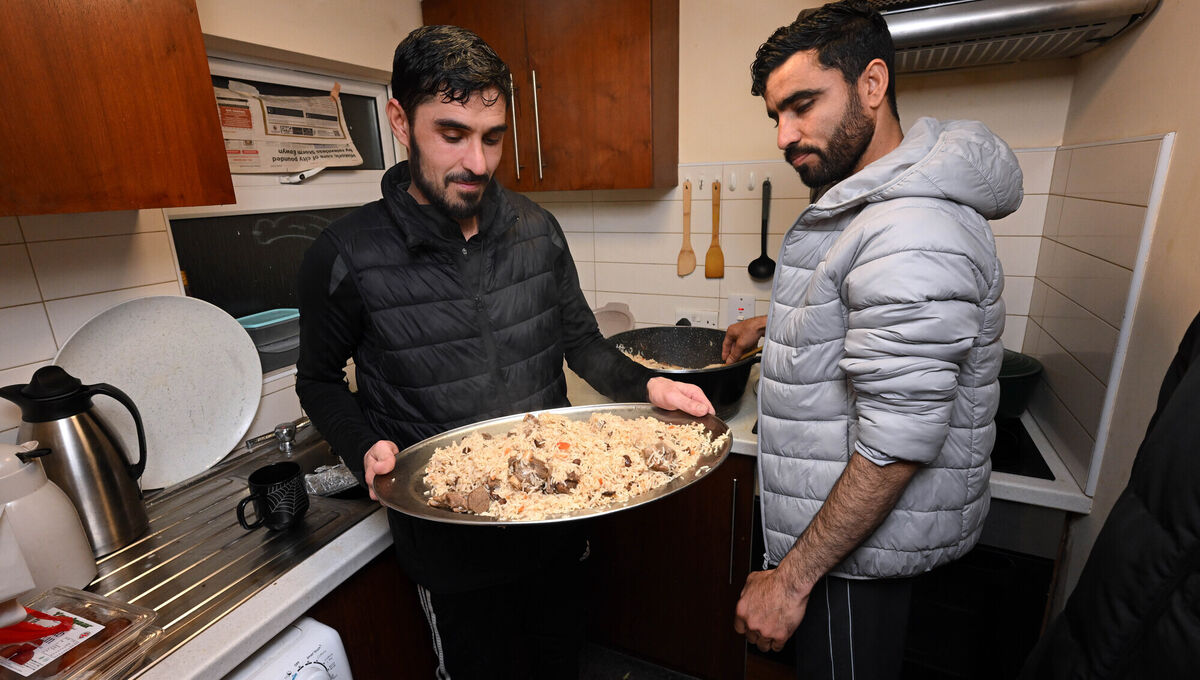
Throughout the 29 or 30 days of the holy month (depending on the moon state), they each organise their daily routines according to their prayer and fasting schedule.
Hamza, who works for a security firm in Galway, is impressed by his Irish co-workers’ respect for his faith.
Hamza adds that any abuse he has received comes not because he is Muslim, but because some people target him as an immigrant.
“It doesn’t happen too often, but when it does it is people calling you a ‘bloody immigrant,’ or whatever. Mostly, people are kind and curious.
“It’s a strange feeling. I feel more Muslim here than I did at home, even though we are so separated from our families and traditions. For that reason, I look forward to Ramadan.
"It has more significance and it’s a chance to be a better person and Muslim.”
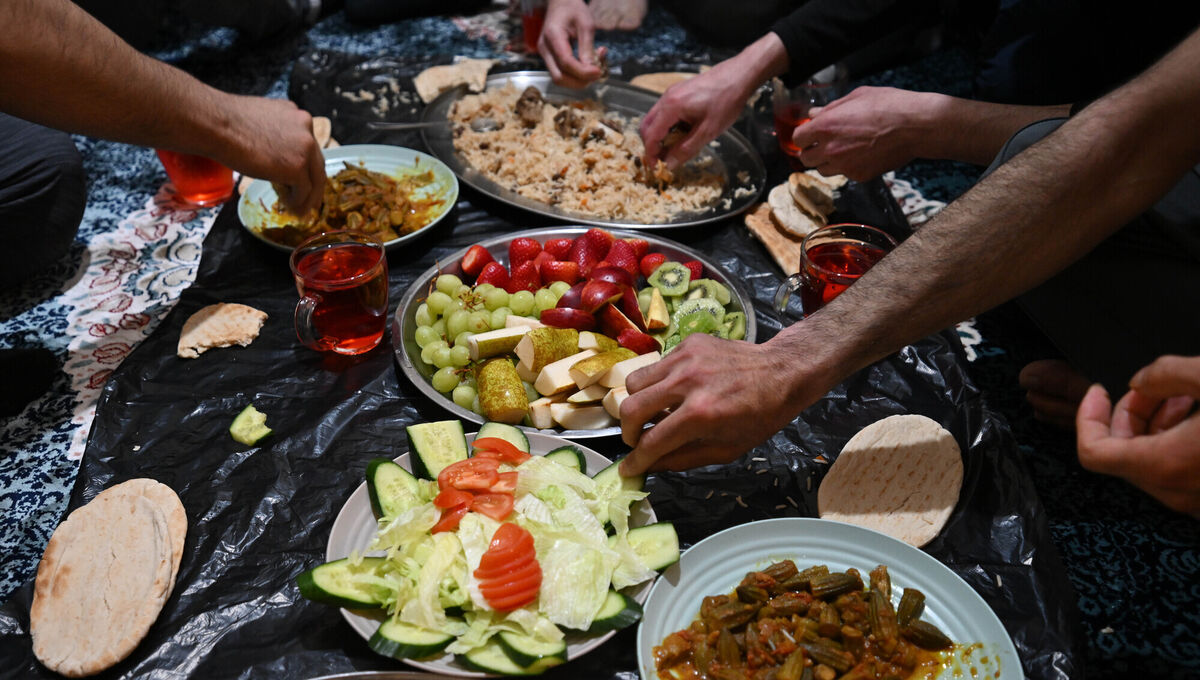
The men come from different parts of Afghanistan and never knew each other before arriving in Ireland. As they talk, they tease each other about the absurdity of the stories of how they arrived here.
Listening as a guest in their home, there is nothing funny about it. It took all of them at least two years and many thousands of dollars to reach Ireland.
Their journeys include a litany of traumas most of us could not imagine, including fellow asylum seekers dying in their pursuit of a better life.
Habib, who was a teacher in an all-girls school in the southeast of the country, close to the Pakistan border, now works in a popular Galway restaurant.
His journey to Ireland sounds like a Hollywood movie: Fleeing his home in Afghanistan, moving from Pakistan to Iran, to Turkey, through Greece, Bulgaria, across Europe, before arriving in Britain from France.
It includes hundreds of miles on foot, and thousands more in suffocating shipping containers, trucks, trains, and on rafts at sea.
He sends much of the money he makes in Galway home to his wife and two children in Afghanistan, reasoning the journey to be much too dangerous for them to make. He hopes to be reunited with them soon but, in the meantime, he is content to work, live, and pray, while providing for them as best he can.
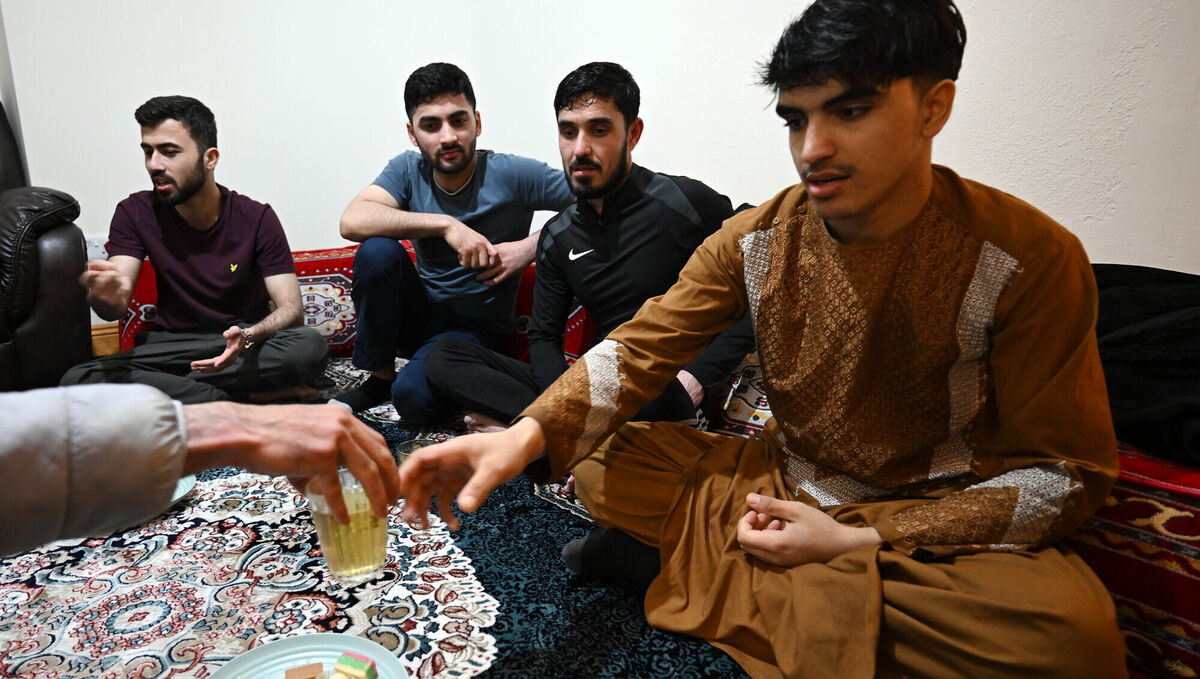
Habib is shy and is not as confident in his English as the others. However, through his friends — they all speak Pashtu — he tells me that working in a kitchen around food everyday as he fasts is not the challenge some think it is.
“It gives me energy,” he explains, “being around good people and good food. The days pass quickly.”
Typically, young Muslim men and women begin to observe the rituals of the holy month when they are physically able. For Hamza, it was incremental.
“I was very keen to start when I was a teenager, but my father was careful with me. You do what you can. Pray, then try to fast for a few hours. The next year you do more, and you continue like that until you are ready.
"A big difference between here and back home is that we do a full day’s work and then come home and have to prepare the food for ourselves.
“There are shops where we can source good halal lamb, which we use for the evening meal. For the morning, it’s usually vegetables.”
Practising Muslims should perform five prayers a day. Those prayers, which consist of a number of rak’ahs (cycles), are known as Fajr (at dawn), Dhuhr (after noon), Asr (late afternoon), and Maghrib (immediately after sunset), and Isha (nighttime prayer), which is usually followed by Taraweeh — a special night prayer performed during Ramadan, preferably at mosque.
The fasting element of Ramadan is considered a private act of worship that brings about nearness to Allah, as well as a form of spiritual discipline and a means to empathise with those less fortunate. The fast is broken at the end of the day with prayer and a festive meal, or Iftar. For many Muslims, it is customary to visit family and friends following the Iftar.
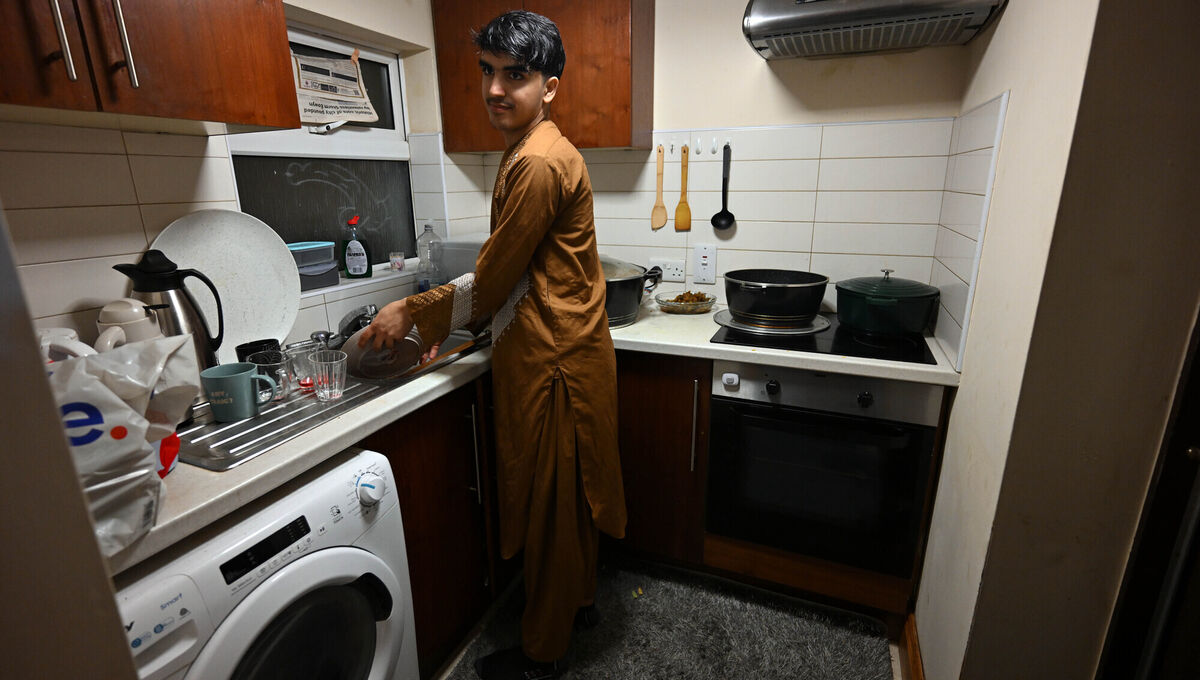
As the men sit in a circle and talk amongst themselves, it is remarkable how similarly traumatic their journeys to Ireland were — and how little they wish to dwell on it. Also, how central their faith is to everything.
For the most part, they feel they had little to complain about their lives in Afghanistan, pre-Taliban. Each one was free to study, work, and worship. The fall of Kabul in August 2021 changed everything, especially regarding the rights of women and girls, whereby now the Taliban regime is amongst the most draconian in the world.
Bashir, from Nangarhār, worked as a social worker and activist. Like Habib, once the Taliban took over, he became a target because of his job and his beliefs. He fled because he had to, and while he greatly appreciates the asylum Ireland has given him, it is clear he misses his old way of life.
His faith, and Ramadan in particular, are an integral part of connecting him to his identity. For that reason, like his friend Habib, he enjoys the opportunity Ramadan gives him to be more spiritual and in touch with his faith.
According to the 2022 census, there are over 83,000 Muslims living in Ireland, the highest concentration in Dublin (over half). Hamza, Habib, and Bashir are amongst many who have arrived since that census was concluded and, with asylum secured, they can and have sought employment — often working two jobs to be able to live and survive here, while also supporting their families back home.
The holy month of Ramadan is a particularly poignant celebration for them, as it amplifies their separation from home but also refocuses their devotion.
“I hope Irish people can understand Ramadan better,” says Hamza, “and if they do, they might have a more positive idea of Islam and its message.
The five pillars he refers to are the declaration of faith (shahada), prayer (salah), giving of charity (zakat), fasting (sawm), and pilgrimage (hajj).
For Dr Zaib Awan, a clinical specialist in the gynecology department at University Hospital Galway, those pillars remain the fundamentals of her daily life.
“As a practising Muslim, of course you will sometimes fail in fulfilling every obligation. But, for me, intentions are most important. Islam captures that.”
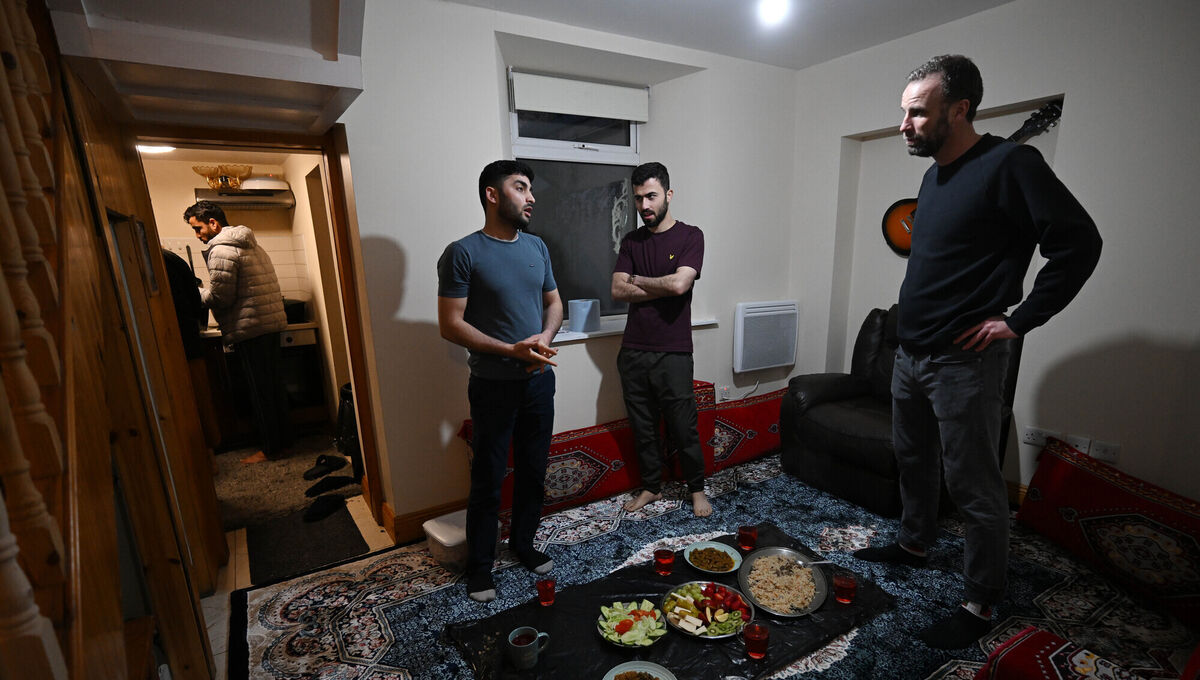
Zaib joined her husband Dr Masud Awan, a consultant anesthetist at University Hospital Galway, in Ireland from their native Pakistan in the mid-1990s. Here, they have built a life, raising three daughters and pursuing successful careers in medicine.
“When I first arrived in the early 1990s,” Masud explains, “the Irish experience of Islam was limited, but largely positive, I would say. Most who came then were medical professionals, so there was a natural association between the two.”
While the journeys of Zaib and Masud differ greatly from those of Hamza, Habib and their friends, the sense of isolation — especially during Ramadan — can hit the same.
“Ramadan awakens a lot of things within me. I think a lot about home, about the rituals, and how we observed them as a family. Here, we are so busy with our professional and personal lives, we have to work harder to be better Muslims because our lives are not centred around our faith — in a practical sense — like they would be at home.”
Is there ever a sense of dread as Ramadan comes around, at how fasting will impact her life?
“No. The opposite. Ramadan is not just about fasting. It is about many, many things. Sure, the element of sacrifice is a very big part of it, but I find such peace in how it re-centres me, reconnects me with my spiritual side — which is so easy to neglect when you are so busy working and being a mother and running a home.
“It reconfirms a lot of things to me, actually. How obsessed we are with things. How much we eat and consume on a normal day, which is far more than we actually need to. How fortunate I am, too, and how less fortunate others are. It really is an annual spiritual cleanse that excites and invigorates me.
“It’s a misconception too that we should rest and conserve energy during Ramadan. Life should continue as normal.”
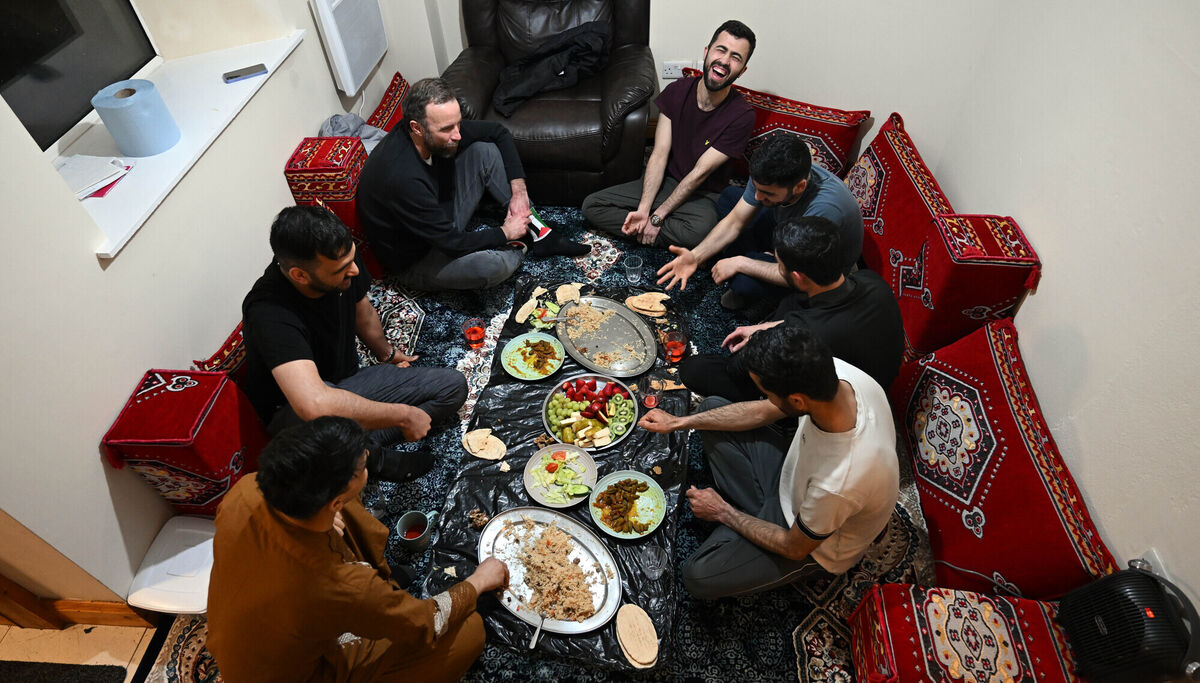
As a child, Ziab was extremely eager to begin fasting and had to be restrained by her parents from doing too much too soon.
“I can remember being as young as six years old, and my father — who was a devout Muslim — telling me to take it easy, to try a 'half fast' first, to gradually train myself.”
She laughs as she recalls growing up in Pakistan, and how central Ramadan — and in particular iftar (the meal that breaks one’s fast) — was to everyone’s life.
Ziab swims, runs, and trains regularly, and as we discuss Ramadan, it’ not lost on both of us how much of what the holy month preaches (and indeed, a lot of other centuries old religious and spiritual practices) is replicated and reproduced by the wellness industry, and peddled at a high price to people who want to live better, but need somebody to tell them how.
I mention intermittent fasting, silent retreats, meditation, detoxing, de-cluttering … the list goes on but, as Ziab correctly points out, each discipline — however it is repackaged and sold — has its origins in faith-based ritual and prayer.
“Islam — and Ramadan in particular — provides me with the tools to cleanse my life, and focus on what’s truly important, which is being closer to Allah.
“Being a better Muslim means being a better person. I always emerge from Ramadan realising that I need less, and that I can do much more.”

